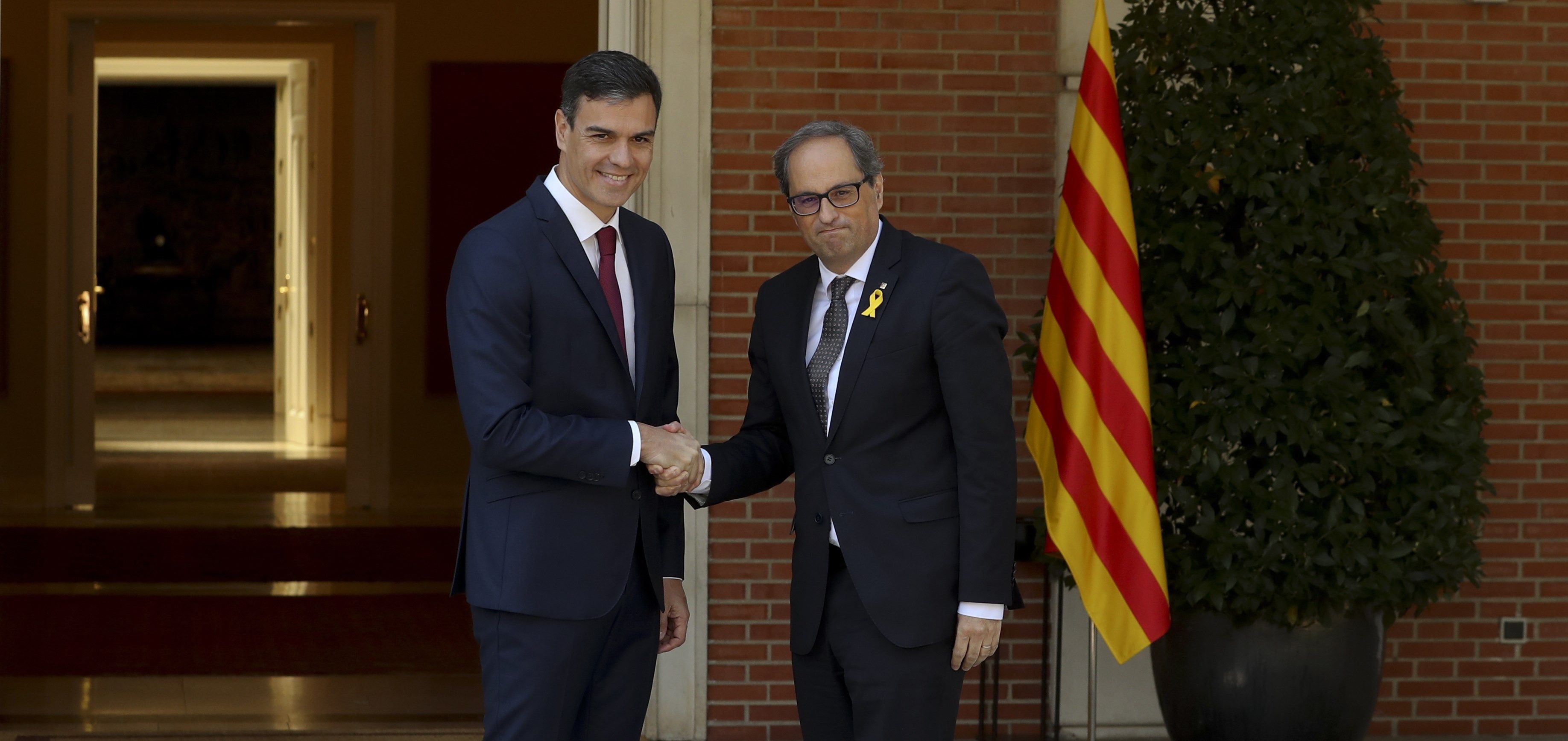The heads of the Spanish and Catalan governments, Pedro Sánchez and Quim Torra, have agreed to reactivate the bilateral Spain-Catalonia commission, which hasn't met since 2011, according to Spanish deputy prime minister Carmen Calvo. The commission will consider withdrawing the appeals to the Constitutional Court over Catalan laws on climate change and social issues, like energy poverty. They will also set up working groups on infrastructure, taxes and transferring powers. The prime minister and president reached the agreement during their meeting this Monday at Madrid's Moncloa government palace which lasted two and a half hours.
According to sources close to Sánchez, the atmosphere in the meeting was "serious" but "better than expected", given the events of the last few months. In the Moncloa, they're aware that Torra continues to want to move towards an independent Catalan republic, but they insist that that "political conflict" needs "political responses": offers and communication, so they've agreed to maintain "fluid and normalised communication and that no short-circuit should take place", according to Calvo.
The bilateral commission will be chaired by Spanish territorial policy minister, Meritxell Batet, who is from Catalonia. Sánchez also promises to visit Catalonia regularly to end "these seven years of disagreement" and to continue "normalising relations", according to Calvo. Indeed, the two leaders will next meet in Barcelona at the Palau de la Generalitat (government palace). Sánchez has also committed to attending the official ceremonies for the first anniversary of the terrorist attacks in Barcelona and Cambrils on 17th August.
The Spanish government has taken the most diplomatic line possible; both sides of the conflict will find comments they like, and those they don't. They avoided commenting on Torra breaking off relations with the monarchy but noted that the king is the head of state. They said that Torra mentioned the right to self-determination, but that this "doesn't exist". Sánchez didn't say it that way to Torra, however, instead emphasising that Spanish unity and article 2 of the Constitution are a red line. And, asked if they maintain the accusation that Torra is "racist", Calvo said it was an "institutional meeting".

The Spanish deputy PM, however, did recognise that Torra still supports republican positions, something that is "public and known to all". "It's no news that the Catalan president has a pro-independence government coalition, but Catalonia can improve its prospects". She said "it's not a simple situation, it requires intelligence, prudence and patience from everyone", as well as "mutual respect". At the same time, she said again that "there are no political prisoners in Spain".
For its part, the Spanish cabinet is hoping for support in areas like overturning the so-called ley mordaza ("gag law"), which could result in an offer being made to the independence movement. That could lead to "parliamentary agreements with the Catalan parties", as seen in the votes to senior positions in public broadcaster RTVE last week, or the motion of no-confidence against Mariano Rajoy. Calvo criticised the previous government for "appealing practically everything" and doubled down on the idea that "Spain has a very high degree of decentralisation" which Catalonia can benefit from.

